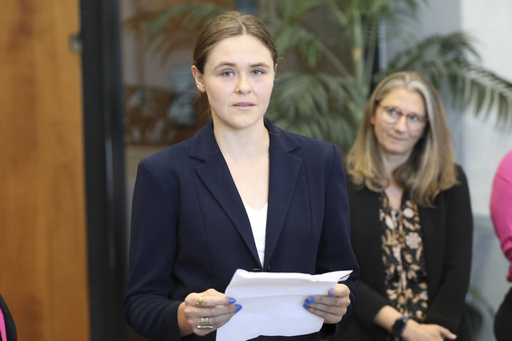
COLUMBIA, S.C. — As South Carolina enforces its six-week abortion ban, legal representatives for both the state and Planned Parenthood are set to revisit the state’s Supreme Court on Wednesday to discuss the level of restrictions imposed by the law.
The existing legislation effectively prohibits nearly all abortions once a fetal heartbeat is detected, which typically occurs around six weeks after conception.
However, advocates for abortion rights argue that the law contains alternative definitions regarding the onset of fetal heart activity, suggesting that the actual restriction on abortions should start closer to nine or ten weeks of pregnancy.
The two parties are scheduled to present their cases for a little over an hour in Columbia.
A decision from the justices is expected to take several months, but the six-week ban is likely to stay enforced as a lower court has already upheld it.
According to the 2023 law, abortions are prohibited once an ultrasound indicates “cardiac activity, or the steady and repetitive rhythmic contraction of the fetal heart, within the gestational sac.”
While this is generally recognized as occurring six weeks post-conception, some argue that the wording suggests a heart needs to have fully developed, which medical experts claim does not happen until around the nine-week mark.
This legal dispute began after the state Supreme Court reversed a previous decision that had overturned a similar abortion ban back in 2021.
After that ruling, the Republican-controlled General Assembly made minor amendments to the law, and a justice who had voted in favor of overturning the ban reached the end of their term and was replaced.
Notably, in the prior ruling that upheld the new law, the Supreme Court acknowledged the differing definitions in the legislation and indicated that clarifying those discrepancies was a matter for future consideration.
That moment has arrived with Wednesday’s hearings.
There have also been additional concerns raised about the law’s terminology, as it refers to a fetal heartbeat, yet many experts categorize a fertilized egg as an embryo for about ten weeks post-conception before it becomes a recognized fetus.
State attorneys contend that focusing on these language distinctions overlooks the Legislature’s original intention.
During debates, both proponents and opponents of the bill conveyed that it primarily constituted a six-week ban.
Following the U.S. Supreme Court’s decision to overturn Roe v. Wade in 2022, which eliminated the nationwide right to abortion, many states led by Republicans have initiated new restrictions or bans. In contrast, Democrat-led states have championed measures to safeguard abortion access.
Presently, 13 states enforce bans on abortion at any stage with limited exceptions, while South Carolina, among other states, implements bans around the six-week mark—often before women are even aware of their pregnancies.
One of the latest lawsuits originates from Taylor Shelton, a resident of South Carolina, who expressed shock upon finding out she was pregnant just two days after missing her regularly monitored period.
After experiencing pain related to her intrauterine device, she sought medical assistance, leading to her unexpected discovery.
Consequently, Shelton had to travel to North Carolina for multiple appointments to obtain an abortion because healthcare providers in South Carolina were uncertain about how to interpret the heartbeat definition, leaving her uncertain about her stage in relation to the six-week limit.
In addition, some Republican members in South Carolina are advocating for a complete abortion ban. However, despite the introduction of relevant legislation earlier this January when the General Assembly commenced its two-year session, no hearings have yet occurred regarding the matter.

